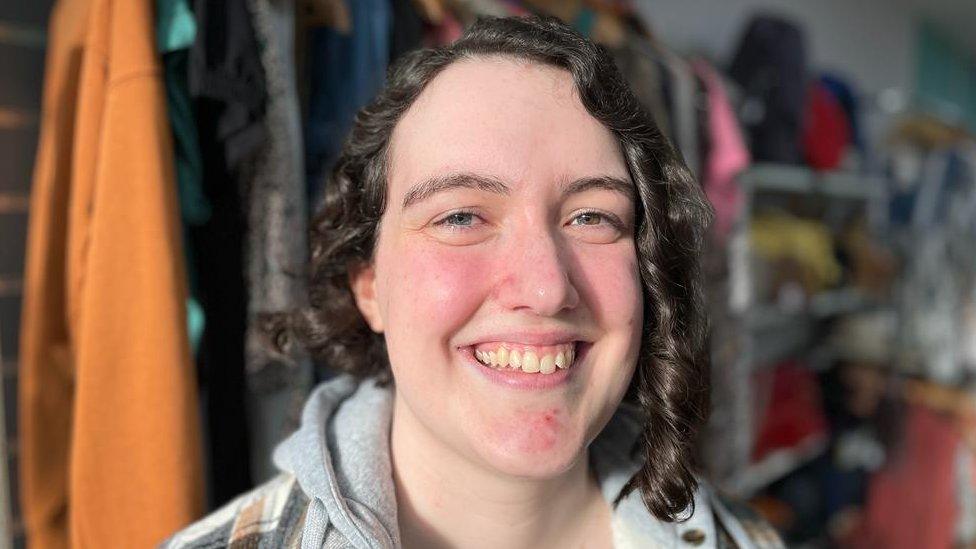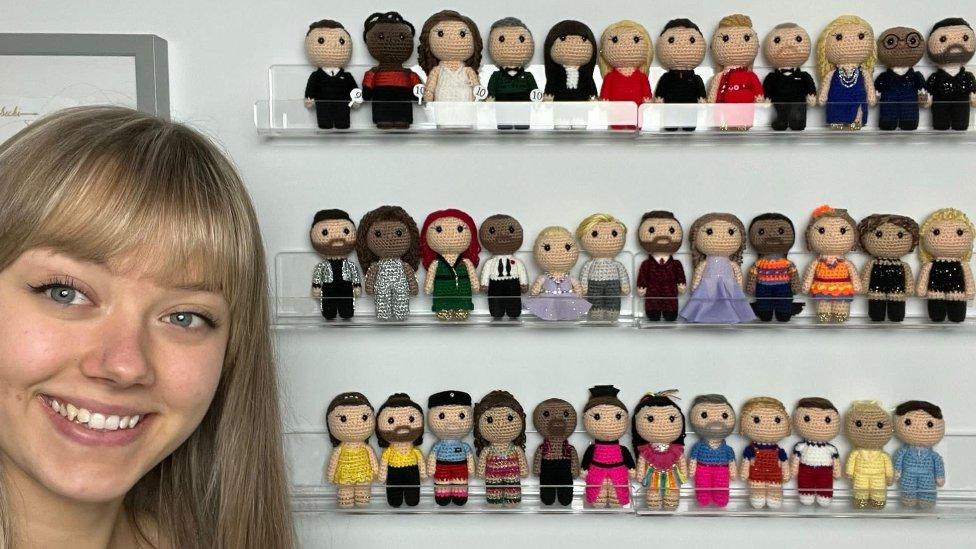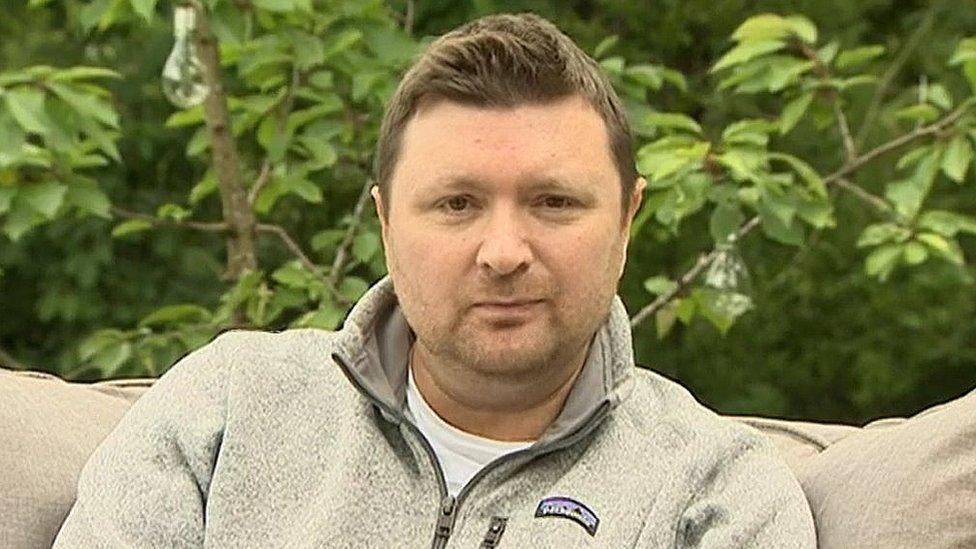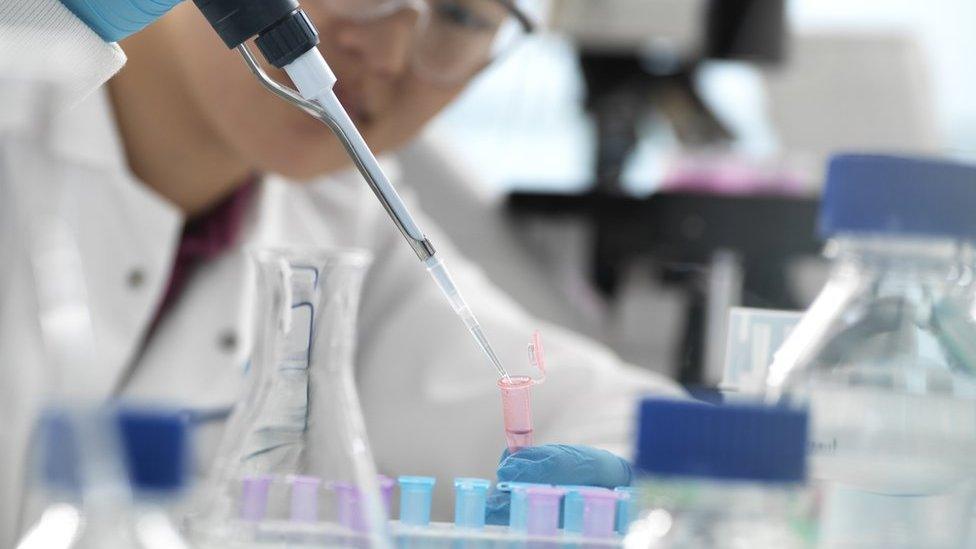Chronic fatigue: Volunteering helps teenager with syndrome
- Published

Maddie's diagnosis of chronic fatigue meant she was unable to follow her acting dreams
Just two hours a week volunteering at a charity shop has helped turn Maddie Davies's life around.
A diagnosis of chronic fatigue syndrome seven years ago affected all areas of the 19-year-old's life.
It is a disorder characterised by extreme tiredness and there is currently no cure.
"Because I couldn't go to school and all my friends were still in school, I felt isolated," said Maddie, from Cardiff, who volunteers at Tenovus Cancer Care in the city.
"My self-confidence and self-esteem were absolutely shattered.
"I'm currently much better thanks in part to working at the charity shop and therapy."
'Burst of confidence'
Her experience chimes with the findings of a new survey by Public Health Wales, which showed nearly three-quarters of people actively choose to help others to protect and improve their own mental wellbeing, external.
Volunteering alone isn't a magic bullet. Maddie has had counselling to help her focus on setting small, achievable goals.
"When you do them you get a burst of confidence," she said. "The first time I volunteered for an hour in the charity shop I was absolutely shattered - I had to take a nap afterwards."
But she explained she felt incredible afterwards for having achieved something.
Chronic fatigue syndrome limits what Maddie can do, and overdoing it can leave her feeling unwell, with joint and muscle pain or migraines.
"I used to love going hiking but I can't do that any more without sacrificing a couple of days afterwards to rest.
"Quite honestly I don't think about what I want to do in the future because I don't know what my health will be like. I don't want to have a huge plan and then not have it become an eventuality - that would just be too hard on me."
She has found a huge sense of self-worth from volunteering.
'Just amazing'
"Knowing that what I can do - which is a little - is still helping other people who are in less fortunate situations than me. That's just amazing.
"I can't think of a single one of my friends my age who doesn't suffer with anxiety or social anxiety of some sort.
"Knowing that I work with the same group of people every day and they're all absolutely wonderful has really helped that. It's a safe space where you can trust the people there.
"I know it won't be for everyone, but compared to where I was a couple of years ago, I do feel more confident in my future now."
Nearly three-quarters of people in Wales choose to help others in order to protect and improve their own mental well-being, according to a new survey released by Public Health Wales.
Dr Catherine Sharp from Public Health Wales said the survey is still in its pilot stage, but seeks to ask members of the public for their opinions on a range of topics, which in turn could shape future policies.
"In order for us to understand what we should be doing, what direction we should be travelling in, we need to understand what the public's view is, and how we can help to work with them to shift patterns.
"Now we know where the public are already targeting their time, we can look to build on those elements.
"For example, 72% are connecting with nature. That's fantastic. That is an open resource that we have here on our doorstep throughout Wales.
"Perhaps those individuals who are already benefiting from it can share and spread that message in their community, so other individuals can benefit from it as well."
Related topics
- Published23 December 2022

- Published3 July 2022

- Published12 September 2022
